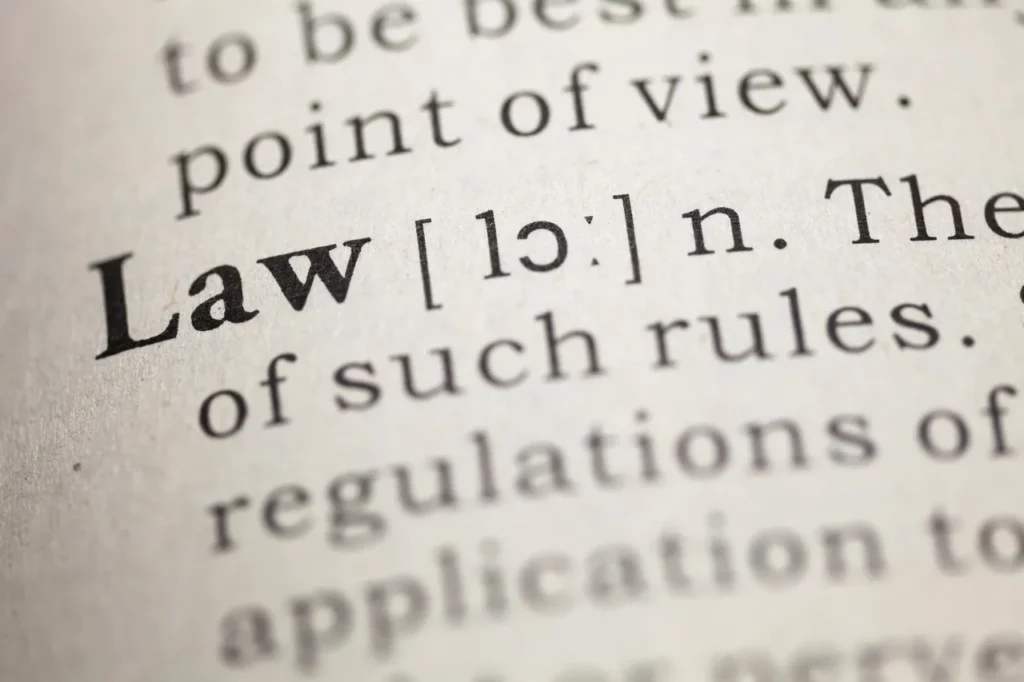
Secure the strong legal defence you deserve

What is Proceeds of Crime?
Dealing with property suspected of being proceeds of crime pursuant to Section 193(C) Crimes Act 1900 (NSW) carries a term of imprisonment between 3 and 10 years. There are differences between the different possible charges you could face pursuant to section 193(C) which depends on the knowledge you had at the time of the offending.
An offence of dealing with the proceeds of crime is what is known as a “table 1” offence under the legislation, which means that the matter will remain in the local court unless an election is made by the Department of Public Prosecutions, commonly known as the DPP.
In a world where everyone is using electronic banking, fraud has become a serious issue and has increased over the years. Many young people are recruited to accept the proceeds of crime into their bank accounts on false information and then asked to transfer the money to an overseas bank account. Often these offences can involve hundreds of thousands of dollars and it is important to understand the courts impose hefty jail sentences for serious offences of fraud.
What must the prosecution prove?
A person who deals with property, and there is reasonable grounds for that person to suspect that the property is proceeds of a crime, then that person is guilty of an offence.
The law is set out in sections 193B and 193C of the Crimes Act 1900 (NSW). The offence of “dealing with property suspected of being proceeds of crime” or what is commonly referred to as “proceeds of crime” is as follows.
The act states;
(1) A person is guilty of an offence if:
(a) the person deals with property, and
(b) there are reasonable grounds to suspect that the property is proceeds of crime, and
(c) at the time of the dealing, the value of the property is $100,000 or more.
Maximum penalty: Imprisonment for 5 years.
(2) A person is guilty of an offence if:
(a) the person deals with property, and
(b) there are reasonable grounds to suspect that the property is proceeds of crime, and
(c) at the time of the dealing, the value of the property is less than $100,000.
Maximum penalty: Imprisonment for 3 years.
Pleading not guilty to Proceeds of Crime Charges
PLEADING NOT GUILTAY TO PROCEEDS OF CRIME CHARGES
You will be found not guilty of the offence of a dealing with proceeds of crime offence if the police cannot prove beyond reasonable doubt
- You deal with property and there are reasonable grounds to suspect the property is proceeds of crime.Or
- You deal with the proceeds of a crime being reckless as to whether it is the proceeds of crime.Or
- You deal with the proceeds of a crime, knowing that it is the proceeds of crime.Or
- You deal with the proceeds of a crime, knowing that it is the proceeds of crime, and intending to conceal that it is the proceeds of a crime.
That is a high standard of proof that the prosecution must achieve before someone can be convicted of dealing with the proceeds of crime. It is the prosecution obligation to prove the charge beyond a reasonable doubt.
To establish dealing with the proceeds of crime, the prosecution must prove each of the following matters beyond reasonable doubt:
- You deal/dealt with property; and
- There are reasonable grounds to suspect the property is proceeds of crime.
Or - You deal with proceeds of crime;
- Being reckless as to whether it is proceeds of crime.
Or- You deal with proceeds of crime;
- Knowing that it is proceeds of crime
or - You deal with proceeds of crime;
- Knowing that it is proceeds of crime; and
- Intending to conceal that it is proceeds of crime.
- Deal with includes receive, possess, conceal or dispose of; or bring or cause to be brought into NSW, including transfer or cause to be transferred by electronic communication, or engage directly or indirectly in a transaction, including receiving or making a gift.
Proceeds of crime means any property that is substantially derived or realised, directly or indirectly, by any person from the commission of a serious offence.
Depending on your knowlege at the time of the offending will change the charge that you may or may not be guilty of. Our Criminal Lawyers often negotiate the downgrade of these charges to the relevant charge based on your knowledge at the time of the alleged offence.
WHAT ARE THE POSSIBLE PENALTIES FOR A LARCENY OFFENCE?
A person who deals with property, and there is reasonable grounds for that person to suspect that the property is proceeds of a crime, then that person is guilty of an offence.
The law is set out in sections 193B and 193C of the Crimes Act 1900 (NSW). The offence of “dealing with property suspected of being proceeds of crime” or what is commonly referred to as “proceeds of crime” is as follows.
The act states;
(1) A person is guilty of an offence if:
(a) the person deals with property, and
(b) there are reasonable grounds to suspect that the property is proceeds of crime, and
(c) at the time of the dealing, the value of the property is $100,000 or more.
Maximum penalty: Imprisonment for 5 years.
(2) A person is guilty of an offence if:
(a) the person deals with property, and
(b) there are reasonable grounds to suspect that the property is proceeds of crime, and
(c) at the time of the dealing, the value of the property is less than $100,000.
Maximum penalty: Imprisonment for 3 years.
PLEADING NOT GUILTY TO PROCEEDS OF CRIME CHARGES?
You will be found not guilty of the offence of a dealing with proceeds of crime offence if the police cannot prove beyond reasonable doubt
- You deal with property and there are reasonable grounds to suspect the property is proceeds of crime. Or
- You deal with the proceeds of a crime being reckless as to whether it is the proceeds of crime. Or
- You deal with the proceeds of a crime, knowing that it is the proceeds of crime. Or
- You deal with the proceeds of a crime, knowing that it is the proceeds of crime, and intending to conceal that it is the proceeds of a crime.
What is the best defence for Proceeds of Crime Charges?
A Criminal Lawyers Group, our criminal law team frequently get charges of Proceeds of Crime dropped or downgraded. The defence will depend on the individual circumstances of the offence that took place. However, some of the most common defences include;
- That you didn’t know that the property was proceeds of crime. That you had no reasonable grounds to suspect that the property was obtained via criminal activity.
- That you do not do the transaction
- Duress where you may have been coerced or threatened into using or dealing with the proceeds of a crime
What is “reasonable grounds” to suspect property is proceeds of crime?
The Act includes the following guidelines for what could constitute as “reasonable grounds” to suspect property is proceeds of crime.
- The dealing with the property involves a number of structured transactions that seek to avoid reporting requirement of the Financial Transaction Reports Act 1988; or
- The dealing involves a number of structured transactions that seek to avoid reporting requirement of the Anti-Money Laundering and Counter-Terrorism Financing Act 2006;
- The dealing involves the use of bank accounts held in false names; or
- The dealing amounts to an offence under section 139-141 of the Anti-Money Laundering and Counter-Terrorism Financing Act 2006; or
- The value of the property in question is grossly out of proportion to the income of the defendant and expenditure over the period of time; or
- The dealing involves a significant cash transaction under the Financial Transaction Reports Act 1988 and the defendant has not fulfilled reporting obligations or has given false or misleading information for reporting purposes; or
- The dealing involves a threshold transaction under the Anti-Money Laundering and Counter-Terrorism Financing Act 2006 and the defendant has not fulfilled reporting obligations or has given false or misleading information for reporting purposes; or
- The defendant has stated that the dealing was dealt on behalf of another person, but has not provided information that allows authorities to locate the other party.
Steven Mercael
Principal Lawyer

Frequently Asked Questions
An offence of dealing with the proceeds of crime is what is known as a “table 1” offence under the legislation, which means that the matter will remain in the local court unless an election is made by the Department of Public Prosecutions, commonly known as the DPP. However, a “knowingly deal” offence will proceed to the district court.
This will depend on a wide range of factors including:
- Your age and criminal history
- Objective seriousness of the offending (factoring in the sophisitication)
- The amount of money involved etc
Our criminal lawyers will advise you on your case.
The court will impose a sentence for your case. This could be on the same day as the plea of guilty is entered or after a sentence assessment report is ordered. Our Criminal Lawyers will guide you through this process.
If you plead not guilty to the charge of dealing with the proceeds of crime, the police will be required to serve a brief of evidence they intend to rely upon for your prosecution. After the evidence is served, you will meet with our criminal lawyers and understand the evidence against before preparing a plan of attack to successfully defend the charge or negotiate a lower charge.
The short answer is Yes.
Penalties include:
- Fine
- Good Behaviour Bonds
- Intensive Corrections Order
- Full-time imprisonment.
Please contact us if you cannot find an answer to your question.